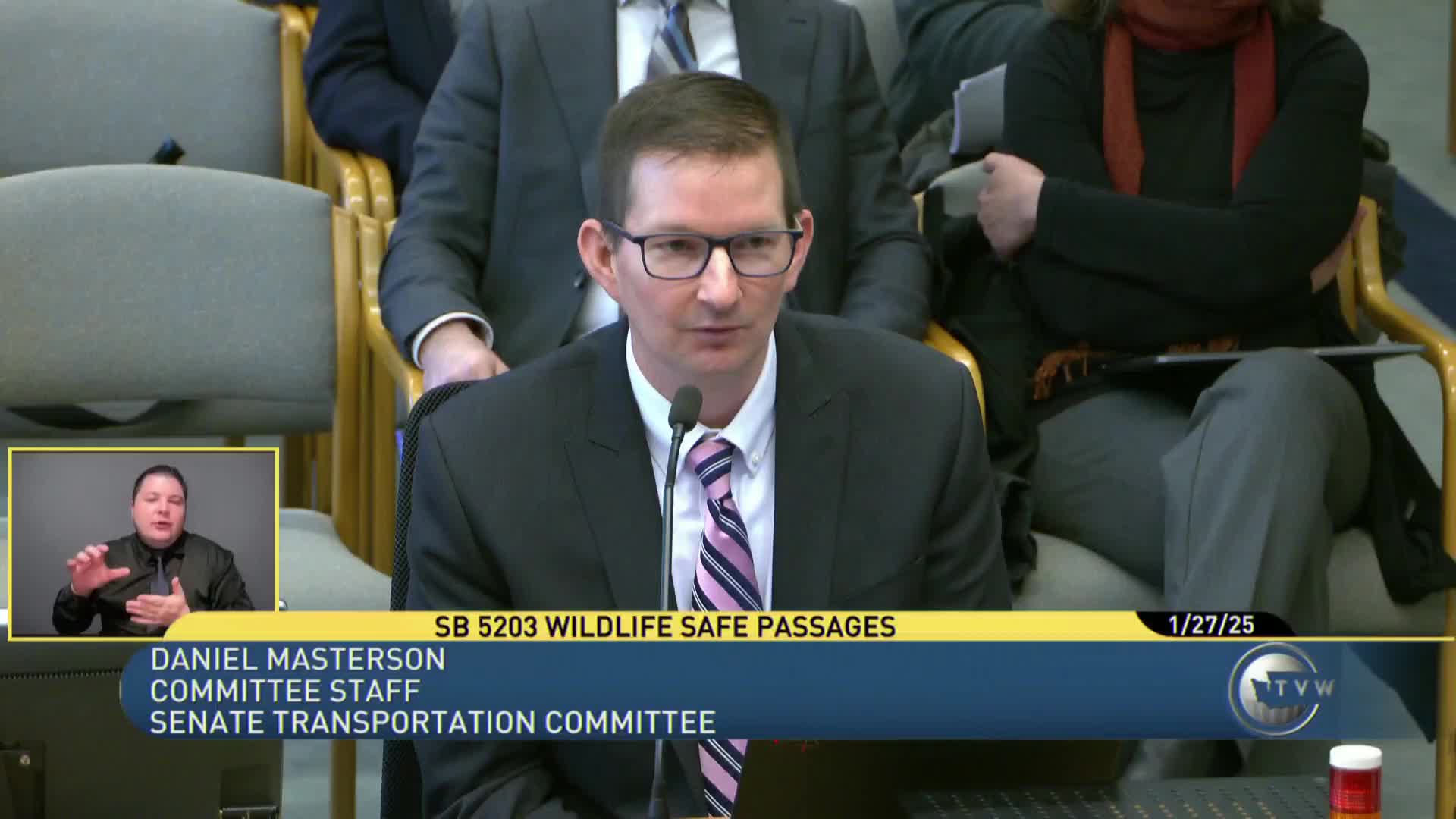Senate committee hears bill to create wildlife corridor and crossings accounts
Get AI-powered insights, summaries, and transcripts
Subscribe
Summary
A Senate Transportation Committee public hearing on SB 5203 focused on creating a coordinated strategy and two state accounts to fund wildlife corridors and crossings; supporters said crossings reduce collisions and position Washington to compete for federal grants.
Senate Transportation Committee members heard testimony on Senate Bill 5203 on Jan. 27, 2025, which would require the Washington State Department of Transportation and the Department of Fish and Wildlife to develop an integrated wildlife habitat connectivity strategy and establish two accounts to support corridor and crossing projects.
Committee staff member Danny Masterson told the committee, “WSDOT estimates the vehicles on state roads collide with at least 5,000 deer and 2,000 elk each year.” The bill would create a Washington wildlife corridors account to fund protection and management activities and a Washington wildlife crossings account to finance design, construction, restoration and related measures to reduce wildlife-vehicle collisions.
Supporters from conservation and scientific organizations said the proposal is both a safety and ecological priority. Paula Swedine, policy director at Conservation Northwest, said the crossings can sharply reduce collisions and their associated costs: “These collisions involving thousands of animals cost people who live and travel in our state over $75,000,000 a year.” Julia Michalak, priority habitats and species section manager at the Washington Department of Fish and Wildlife, said the department supports the bill as a tool to implement the Washington Habitat Connectivity Action Plan and to increase competitiveness for federal grants.
Prime sponsor Sen. Phil Solomon framed the measure as a way to make Washington competitive for federal funding, saying the bill would set up systems to receive and direct federal and private dollars so the state can have “shovel-ready projects.” Committee staff noted the bill would require appropriations to spend from the new accounts; staff also said WDFW estimates biennial expenditures of about $238,000 and that WSDOT expects no new fiscal impact because a recently hired biologist could perform some responsibilities through other funding.
Testimony from private forest landowners, conservation groups and scientists emphasized multiple benefits: reduced human injury and property damage, lower carcass-removal costs, and improved wildlife genetic connectivity. Claudine Reynolds, director of wildlife and environmental policy for Port Blakely, described the proposal as “scientifically robust and ready to implement.” Sam Merrill of Audubon noted that crossings pay for themselves when fewer collisions are considered.
Committee staff indicated the hearing would be suspended and revisited after the work session; no committee action or vote on SB 5203 was recorded that day.
The bill as introduced would also require biennial reporting on expenditures and implementation progress. Supporters said they do not expect the state to fully capitalize the accounts this session and are pursuing private and federal funds to seed projects and demonstrate readiness for larger construction investments.
If advanced, the bill would place priorities, oversight and funding recommendations under a joint approach between WSDOT and WDFW, and require consultation with tribes, federal agencies, nongovernmental partners and academia.
Community testimony included a range of local perspectives, including calls for freight corridor investments in areas where tribal and rural transportation needs intersect with wildlife concerns. Committee staff and proponents said they would work with legislators on fiscal and technical details going forward.
